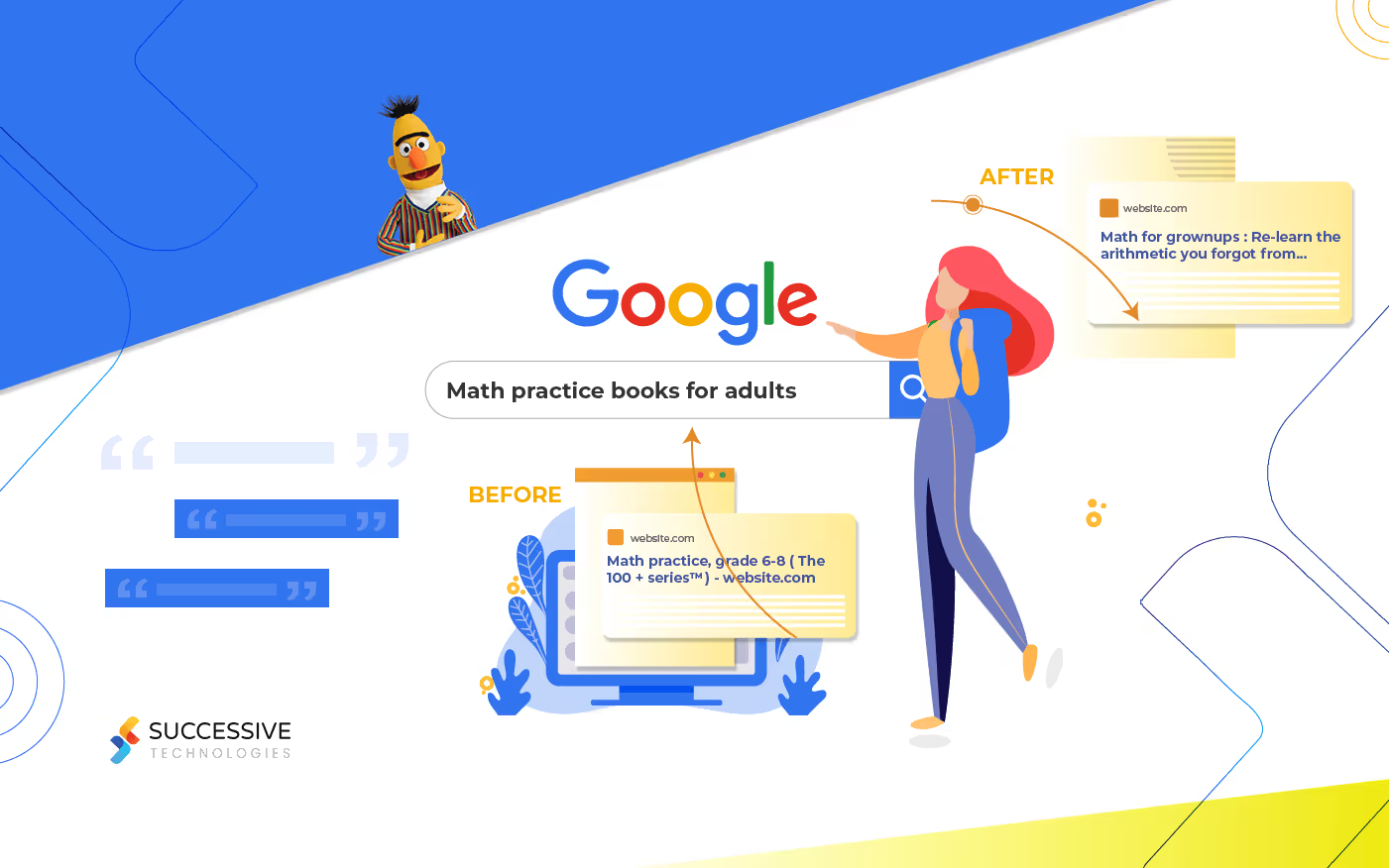Almost five years ago, Google introduced a development known as RankBrain to its search system. Now, it has rolled out a new change known as BERT, and the company calls it “the biggest change of the last five years”. This means that BERT is the biggest change to hit Google’s search system since RankBrain came out, and we can only expect a huge impact on searches.
BERT, which stands for Bidirectional Encoder Representations from Transformers, is a neural network-based technique for language processing. It is a Natural Language Processing (NLP) that has been pre-trained in the Wikipedia corpus and is capable of helping Google gain a better understanding of language, content, and queries so that it can serve better results to users, including enterprises such as top UX design firms and individual users.
Google said BERT helps better understand the nuances and context of words in searches and better match those queries with more relevant results. It is also used for featured snippets. What makes BERT unique is that it can use the context and relations of every word that is found in a sentence, as opposed to one by one in order. This means that simply by looking at the words that come before and after a particular word, BERT is capable of figuring out and understanding the full context of that word.
Understanding BERT better
With this new technology, Google can gain a better understanding of the full list of a query that a user has. To better explain this, Google even gave a very simple example that is easy to understand. If a user searches for “2019 brazil traveller to USA need a visa”, the word “to” and how it relates to the other words used in the query is very important if Google is to give relevant and useful results for the users.
Initially, Google did not have the technology to understand the context of the word “to” and so, it would provide results related to U.S citizens who are travelling to Brazil, rather than a Brazilian travelling to the U.S. In other words, it was not capable of returning accurate, relevant results which the user was looking for.
However, with BERT, the search engine will be able to understand these words in queries a little more like humans do, meaning that it is able to understand the importance of the word “to” in this particular query. Thus, with BERT, Google is able to provide enhanced user experience by returning highly relevant results.
.avif)




















